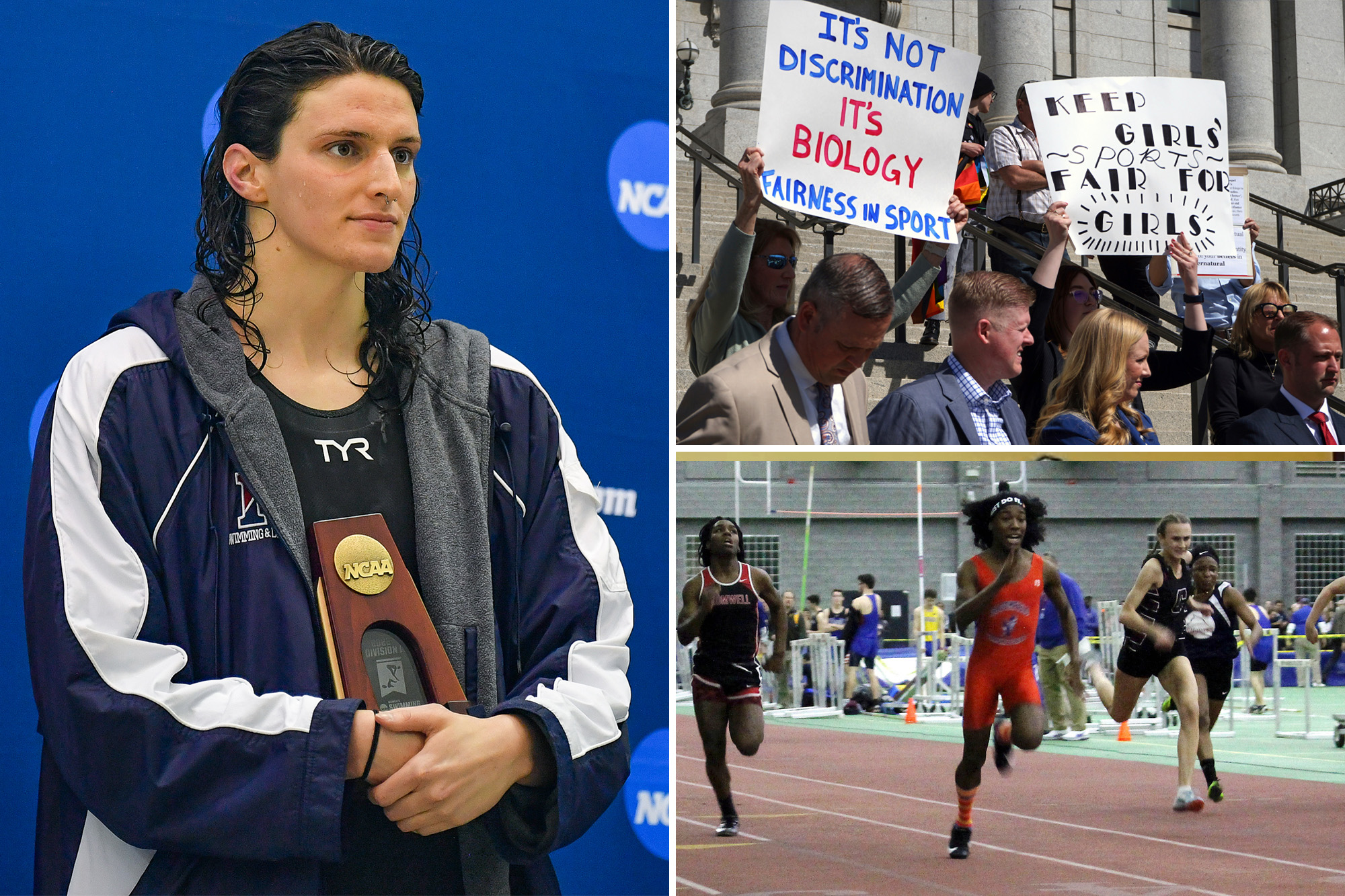
A solid majority of American adults believe transgender athletes should not be allowed to compete on girls’ sports teams — with two-thirds saying it should be permitted “never” or “in rare cases,” according to a new LA Times survey.
The survey, conducted by NORC at the University of Chicago, asked respondents to weigh in on whether trans athletes of both sexes should be permitted to participate in sports leagues that correspond to their preferred gender identity instead of their biological sex.
It posed the same question about adult and child trans athletes, separately polling US adults overall, California adults and LGBTQ+ adults.
Adults from California were statistically tied with US adults on the question of trans girls competing against biological girls, with 65% answering it should either be never or rarely be allowed.
The responses were virtually identical when those polled were asked about adult trans female athletes competing in women’s sports teams, with 69% of US adults stating their opposition.
The issue of biological male athletes competing in girls’ sports leagues after undergoing gender transition treatment has become a national political flashpoint, in part set off by controversial University of Pennsylvania swimmer Lia Thomas.
Thomas, 24, the 6-foot-1 athlete who began transitioning using hormone therapy in May of 2019 after competing for three years as a male, dominated the field to become the first openly trans person to win an NCAA Division I title in March 2022.
Competing as a male at UPenn, Thomas was ranked an unspectacular 65th in the 500-yard freestyle and an abysmal 554th in the 200-yard event. Post-transition, she surged to 1st in the female division for the 500-yard and 5th in the 200-yard.
The trans athletes controversy primarily centers around transwomen and trans girls who were born male but are now competing against biological females, which many experts believe unfairly advantages the trans competitors.
But opinions weren’t much different when respondents were asked how they felt about biological girls or women who have transitioned and participate in male sports.
Asked whether transgender boys should be allowed to compete on boys’ teams in sports, 56% of US adults said never or rarely, compared to 55% of California adults and 33% of those identifying as LGBTQ+.
The groups’ responses were again within the statistical margin of error when posed about permitting trans men to take part in men’s sports teams.
In March, a group of 16 female athletes sued the NCAA, which administers collegiate sports at around 1,100 US schools, seeking to force the governing body to ban transgender women from competing in women’s sports.
The group included Riley Gaines, the former Kentucky swimmer who now hosts a podcast for OutKick and has been outspoken about not receiving a trophy after tying Thomas in an NCAA championship race
In April, the National Association of Intercollegiate Athletics (NAIA), which governs athletics for 241 mostly small and private colleges, announced it had barred transgender athletes from competing in women’s sports.
The LA Times/NORC survey was conducted between Jan. 18-26, with 1,624 respondents in total.














